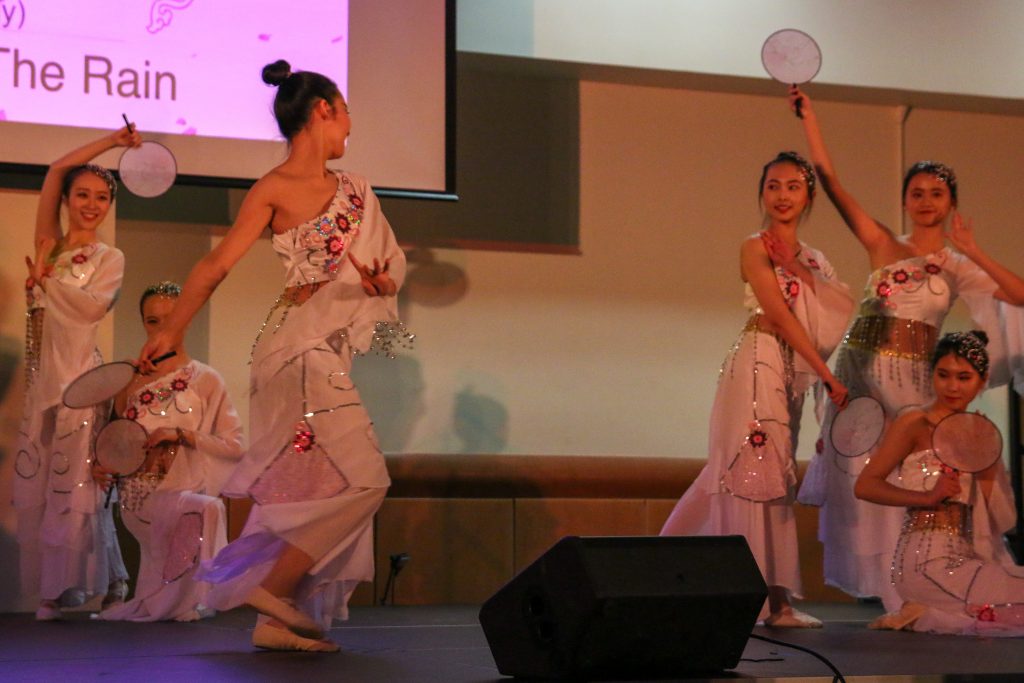
Binghamton University students and organizations are calling on administration to declare the first day of Lunar New Year a recognized holiday.
Lunar New Year is a 15-day celebration that originated in China over 4,000 years ago and is still commemorated by East and Southeast Asian countries as well as Asian Americans today. It begins on the first day of each year on the lunisolar calendar, usually landing between Jan. 21 and Feb. 20. A resolution calling for the holiday was addressed at a Student Association (SA) meeting earlier in the semester and was unanimously passed on April 12. Ten student organizations were in attendance as non-voting sponsors, including the presidents of the Korean American Student Association (KASA), the Asian Student Union (ASU) and the Chinese American Student Union (CASU).
Rita Zheng, the author of the resolution and a freshman majoring in philosophy, politics and law, along with associated organizations are waiting on BU President Harvey Stenger and the administration to move forward with the initiative. Zheng said BU’s recognition of the holiday is long overdue, as the student population of Asians is the second largest racial or ethnic group on BU’s campus.
“Asian students make up about 16 percent of the student population at [BU], which is more than 2,000 students,” Zheng wrote in an email. “This does not include mixed students and non-Asian students that celebrate.”
Zheng originally planned to have the legislation passed right after winter break, but due to the semester being pushed back by a week, the first SA meeting landed right on the holiday.
“Since I knew I wouldn’t be able to pass the legislation before Lunar New Year this year, I took it as an opportunity to gather support from student organizations,” Zheng wrote.
Different cultures celebrate Lunar New Year differently. According to Zheng, in China, it is tradition for people to go home and share a meal with family. They begin celebrating the day before the holiday and continue throughout the 15 days. Britney Mui, president of CASU and a senior majoring in English, listed other traditions, including setting off firecrackers, worshipping ancestors and exchanging red envelopes filled with money with friends.
As it is custom in most cultures to return home for Lunar New Year to spend time and eat a meal with family and friends, some students who celebrate the holiday have had to choose between classes and family traditions. Vanessa Wu — president of ASU and a junior majoring in nursing — compared Lunar New Year to other holidays the University already does not hold classes on.
“It is one of, if not the most important holiday for many Asian cultures, and students have to resort to skipping classes to spend time with their families,” Wu wrote in an email. “When we see the generous breaks given to students for non-[people of color]/Western holidays, we can’t help but feel that our cultures have been overlooked. The University has a long way to go if it desires to be more inclusive, and this is a good step taken by the SA.”
Wu said the ASU has asked the SA for this change since the association’s founding in 1987, a factor behind the ASU and its seven subgroups’ excitement about the decision, according to Nortee Panpinyo, ASU’s senior adviser and senior majoring in systems science and industrial engineering.
“It has been a recurring theme for ASU to ask for recognition of Lunar New Year but also the plethora of other cultural and religiously binding days in which the full diaspora of the multicultural community has unique commitments for,” Panpinyo wrote in an email.
Luca Cassidy, Hinman College’s sponsor of the resolution and a freshman double-majoring in economics and sociology, said he supported the initiative, especially considering the effect the change would have on a friend of his who celebrates Lunar New Year.
“[The resolution] allows a large group of students to feel at home, others to be exposed to different cultures and for all students to come together on a day of rest and celebration,” Cassidy wrote in an email. “I personally have never celebrated the holiday, but I know many who hold it dear to heart, and I see no reason why to deny such a large population on [BU] campus a single day that means so much to them.”


